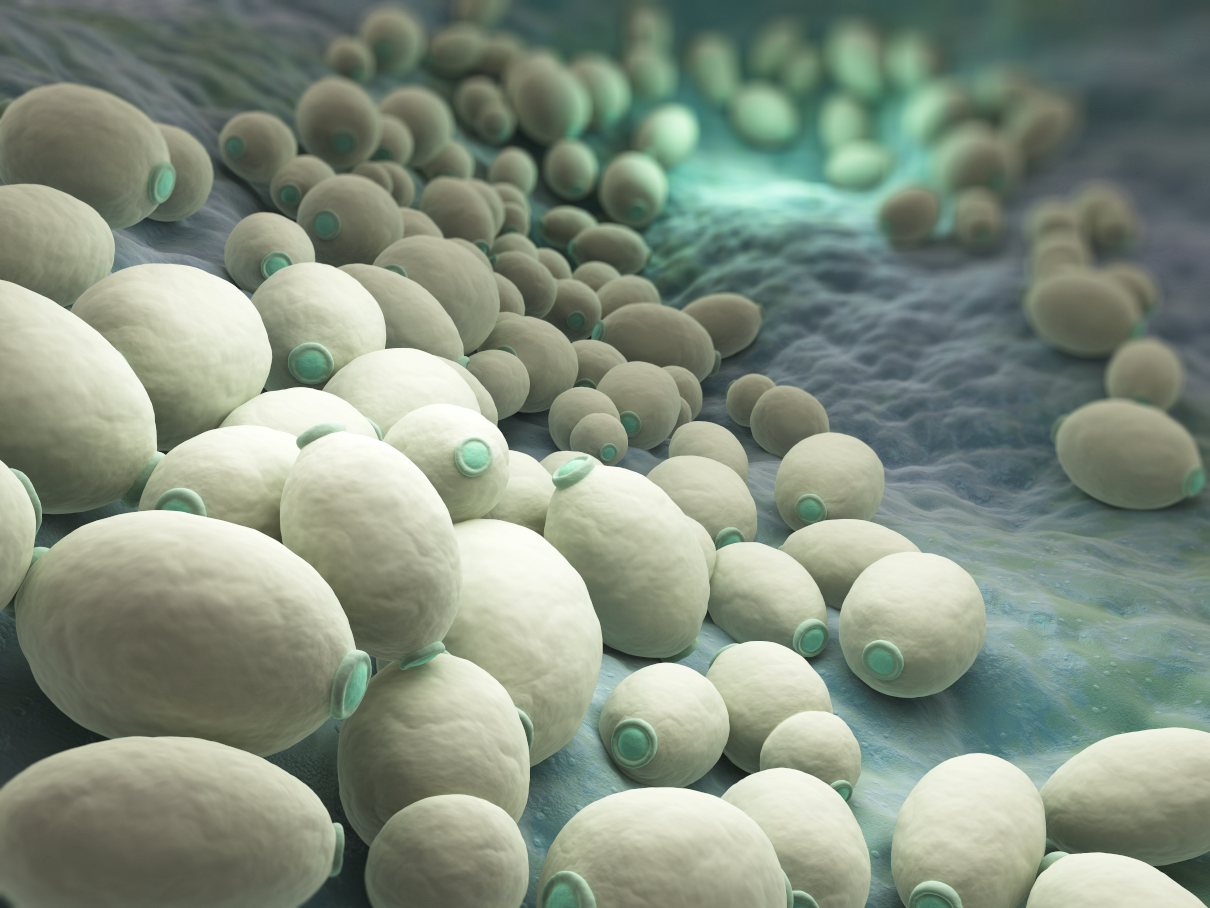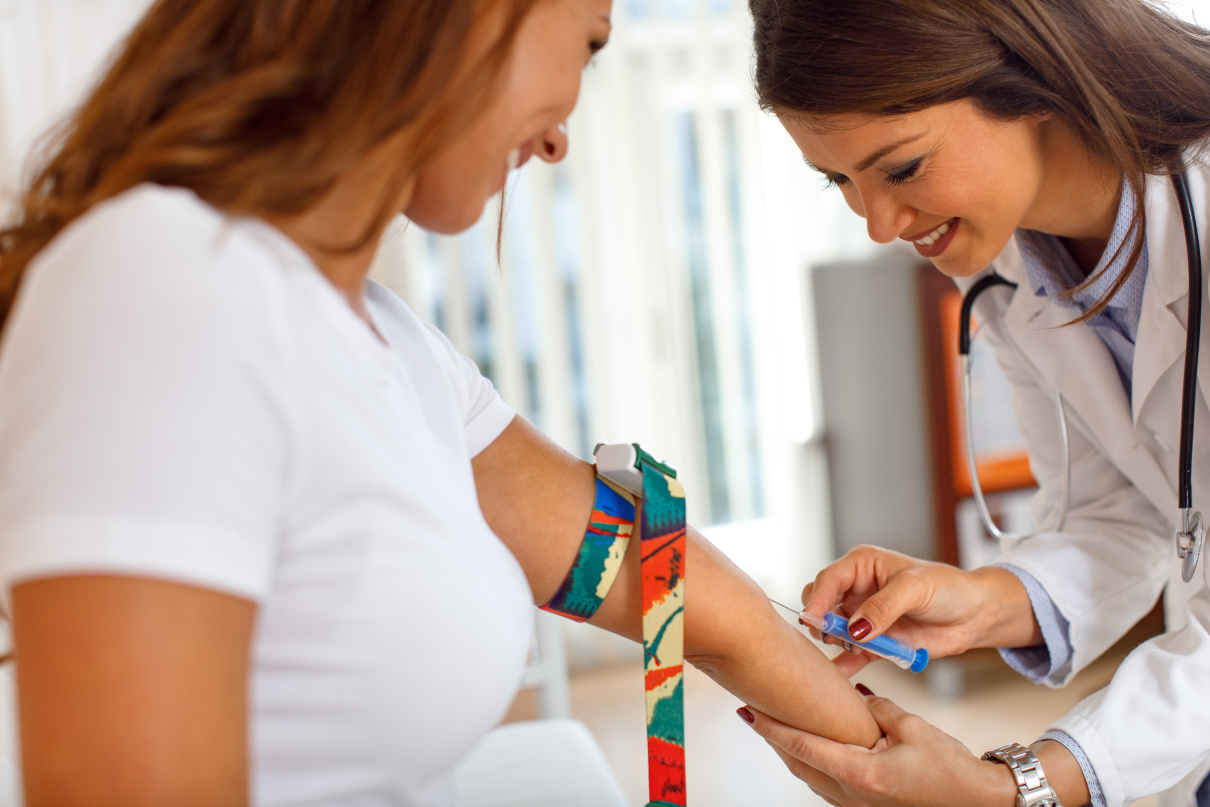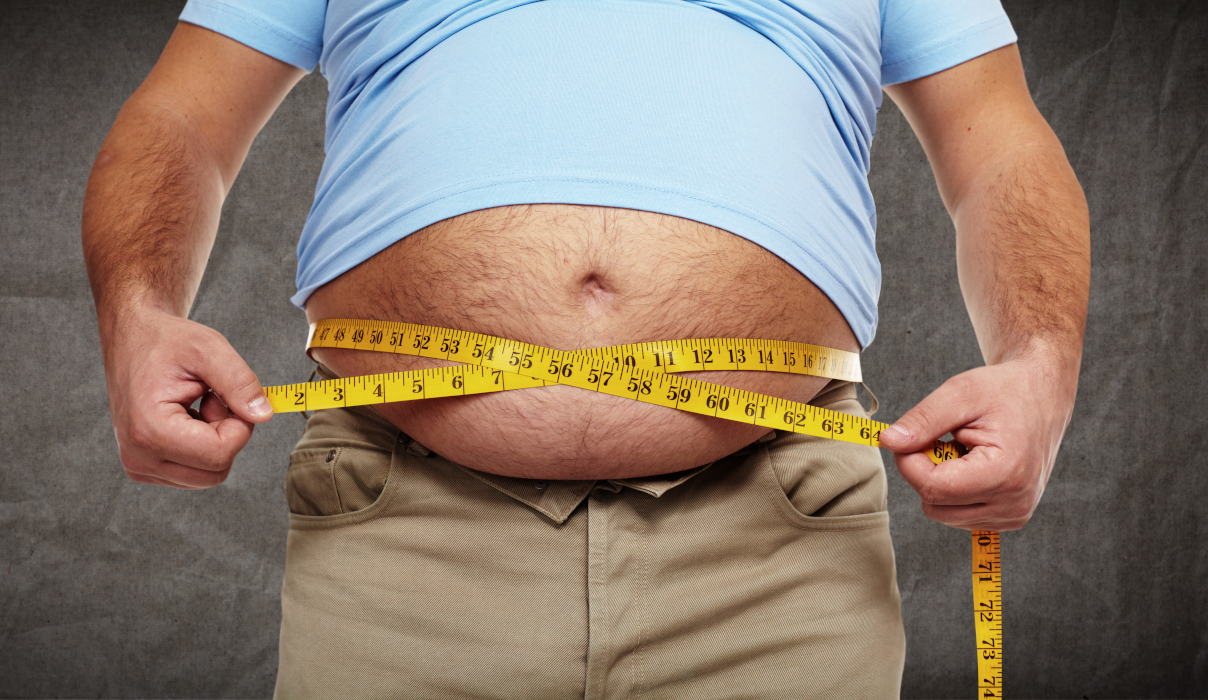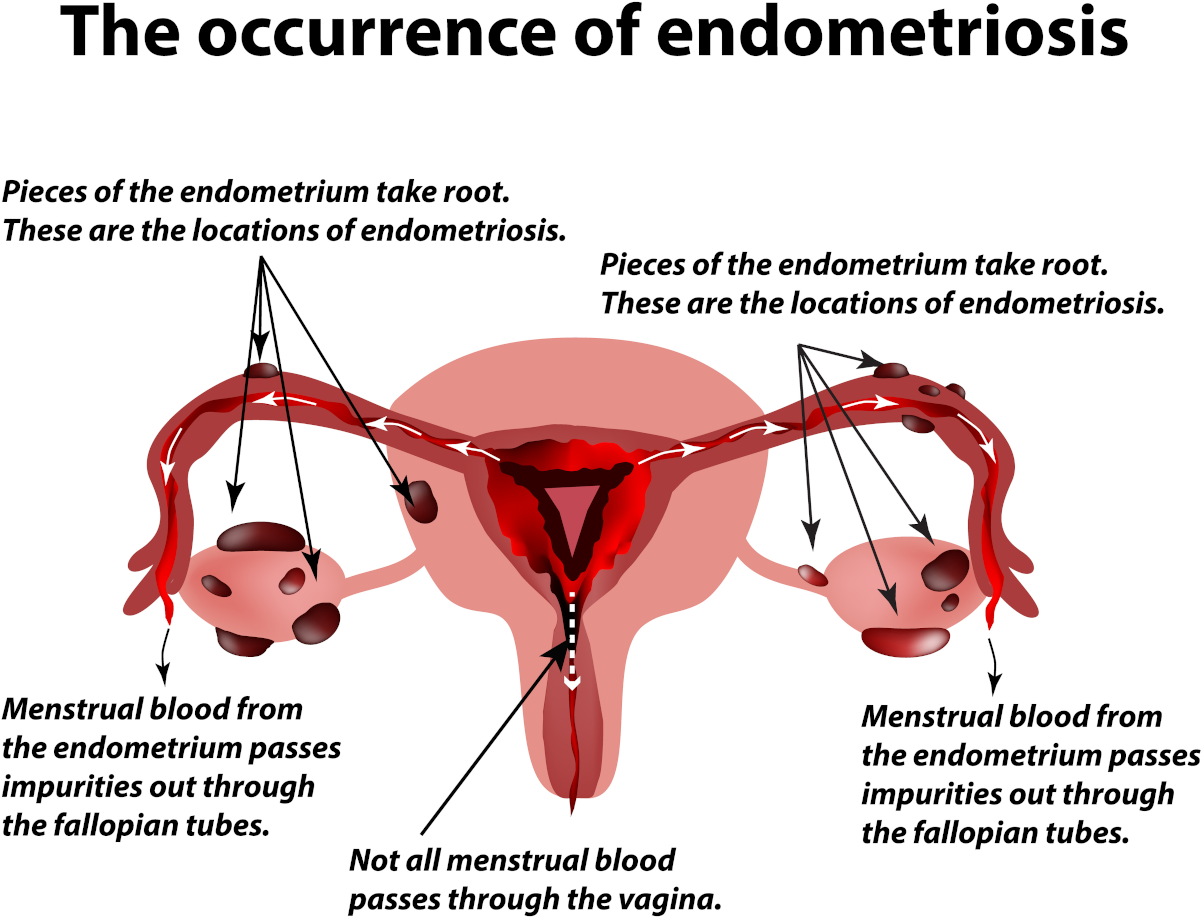
Some symptoms experienced are painful periods, intercourse, urination and defecation, PMS, infertility, and alteration to cycles. However, endometriosis is a condition that affects each sufferer differently. While one has pain during her period, another woman may have it throughout the month. Moreover, internal pain can complicate sexual relationships.
The endometrial tissues line the uterus and respond to hormones during the menstrual cycle. Further, the endometrium thickens and swells with blood. In endometriosis, the endometrial tissue develops where it should not be, outside the uterus, where it still responds to hormonal instructions, bleeding into areas where there is no escape from the blood. Furthermore, adhesions may form, binding tissues and organs together. Organs where endometriosis may develop include the outside of the uterus, ovaries, cervix, bowel, bladder, urethra, and fallopian tubes; rarely, the lungs, pancreas, or nose.
Theory
Several theories exist about why endometriosis occurs. One method, retrograde menstruation, states that the menstrual blood flows back up through the fallopian tubes into the peritoneal cavity, where the endometrial cells take root and grow. While these theories may explain the transportation mechanism, they do not explain why all women have retrograde menstruation or develop endometriosis.
Another recent theory is that the immune system has failed, allowing these rogue cells to grow where they should not know instead of recognising and removing them. Some commentators believe in a genetic predisposition because 7-10% of sufferers have a close relative with the condition. However, many sufferers are the only ones in the family with the disease.
Perhaps the connection is more due to a shared environment than shared genes. Indeed, there is strong evidence linking endometriosis. A clear dose-response relationship was shown between low levels of dioxin in the diet and the development of endometriosis in rhesus monkeys. According to reports of experiments conducted at the University of Wisconsin, the more dioxin, the worse the endometriosis. Also, most of our exposure to dioxin comes from food, the most significant sources being meat and dairy produce.

Mini Detox PLUS – 3 colonics, minerals, herbal & probiotic implants
The ideal pattern of colonic treatments includes three alkalising colon hydrotherapy treatments with sodium bicarbonate, one anti-parasitic implant on the first treatment, one liver and gall bladder stimulating herbal implant on the second treatment, and a high-strength probiotic implant on the third colonic.
A nutritional and functional approach
To clarify, each woman is unique and requires a specialised approach according to her biochemistry. They also respond differently to the environment. Moreover, she may be more or less able to deal with toxicity, digests, and assimilate food differently.
Dietary plan
- All food must be fresh, organic, and thoroughly washed before preparation.
Completely avoid:
- Sugar, in whatever form, including honey and dried fruit;
- Salt and high-salt products such as bouillon;
- Dairy products, including all milk, cheese etc.;
- Beware of sodium caseinate or whey in some packaged foods;
- Wheat and rye;
- Tea, coffee and alcohol;
- Fried food, margarine and hydrogenated fats;
- Soya milk and manufactured soya products;
- Tinned and frozen packaged foods;
- Manufactured meat products, sausages, burgers, luncheon meat, etc.;
- Aspartame, saccharine, monosodium glutamate, food additives, chemicals, preservatives, nitrites, etc.;
- Invest in a good book on e-numbers and take it to the supermarket;
- Find out about shopping at your local organic farm shop.
Eat more:
- Wholegrains, excluding wheat and rye, e.g. brown rice, millet, quinoa, etc.;
- Peas, beans and pulses;
- Seeds and nuts, but not peanuts;
- Vegetables: carrot, parsnip, swede, celeriac, celery, beetroot, cabbage, Brussels sprout, broccoli, cauliflower, radish, lettuce, onion, leek, garlic, chicory, fennel, watercress, sprouted seeds, green bean, cucumber, courgette, yam, sweet potato etc.;
- Vegetables to be used in moderation are pepper, aubergine, tomato and potato;
- Fruit: apple, lemon, red and purple berries, apricots. etc.;
- Fish, especially oily fish.
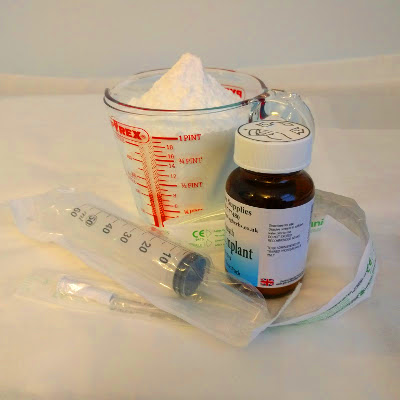
Probiotic implant and alkalising colonic with bicarbonate of soda
Alkalising colonic irrigation with bicarbonate of soda and high strength probiotic implants and comprehensive consultation is available at Parkland Natural Health Clinic.
Other guidelines:
- All meat, poultry, and eggs ought to be organic. You may also include meat in two to three meals per week. Furthermore, choose fresh or frozen lamb, chicken, or game that is natural and free from hormones or antibiotics. Avoid beef, pork, and all offal. Also, avoid all cured and smoked meats.
- Drink eight glasses of filtered water each day (four pints).
Supplement to consider:
- Good quality multivitamin/mineral supplement (without mercury, lead, etc.)
- Vitamin B complex 50mg (containing P5P, folic acid and cyanocobalamin)
- Flax oil 2/3 tablespoons or equivalent capsules
- l000mg magnesium
- 500mg calcium
- 100iu selenium
- 50mg zinc citrate
- 1-3 grams of magnesium ascorbate
- Echinacea tincture according to instructions
- Freeze-dried garlic, one a day
- Antioxidant complex (vitamins E and C, carotenes, curcuminoids, pycnogenol)
- Evening primrose oil 500-1500mg
- Acidophilus, one capsule twice a day between meals
- Digestive enzymes with each meal (if there is no gastric distress or history of gastric illness or ulceration)
- Siberian ginseng for unrelenting stress
- Silymarin or HEP194 to support liver function
Symptoms
With endometriosis, there are possible underlying problems that could contribute to worsening symptoms. These include:
- Compromised digestion. Absorption depends on the breakdown of food into small enough particles. It depends on hydrochloric acid and digestive enzyme secretions. I frequently find that clients are not producing these in adequate amounts and are suffering from malabsorption as a consequence;
- Bacterial dysbiosis, candidiasis or other bacterial or parasitic infection. Dr William Crook in Yeast Connection and the Woman comments on the Candida and endometriosis connection;
- Food allergy and intolerance;
- Heavy metal and other toxicity from dental amalgams and other exogenous and endogenous toxins. Root canals can turn a tooth into a toxin-producing factory, and dead infected teeth generate dimethyl sulphide, a carcinogen;
- Liver overload;
- Thyroid antibodies are higher in women with endometriosis.1 In my experience, hypothyroidism is prevalent. Severe period pain, weight gain, hair loss, cold hands and feet, low blood pressure, slow heart rate and low body temperature may indicate low thyroid function;
- Worries, anxiety and stress from areas of life that need addressing and resolving because these undermine immune function;
- Studies have found that some cancers, diabetes, thyroid and autoimmune diseases were higher in people living with endometriosis and their families than in the general population;
- We also consider deficiencies in vitamins, minerals, essential fatty acids and amino acids.
Nutritional guidelines
In addition, endometriosis involves an immune system deficit. Therefore, it is essential to identify all immunosuppressant factors, including toxic chemicals, heavy metals, harmful organisms, intolerances/allergies, stress, and inadequate nutrition.
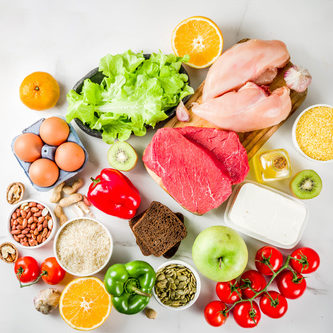
Food intolerance test of 208 ingredients
This is our most comprehensive food and drink test. It analyses your client’s IgG antibody reactions to 208 food and drink ingredients. This test will highlight their food triggers and help you formulate an IgG-guided elimination diet together.
Immune system
Then, the immune system needs support. Taking lactobacilli improves immune function, and garlic and aloe vera juice help enhance immunity and act against Candida. 7 Essiac tea may also be beneficial.
Other valuable nutrients for the immune system are
- Zinc,
- quercetin,
- bromelain,
- cysteine,
- vitamins A, C, E and B complex,
- sambuca,
- ginger,
- dried and aged garlic,
- bee propolis,
- goldenseal,
- echinacea,
- astragalus,
- Panax ginseng and dandelion leaf.
People living with endometriosis have a lower T cell count. Echinacea stimulates T cells, and selenium increases the natural killer cell activity, as do germanium and vitamin C. Proteolytic enzymes also elevate T cells.
I find that hypnosis and visualisation are helpful for illnesses of immunity. An ethical hypnotherapist will help clients feel more positive, confident, calm, and relaxed, which will help the immune system.
Diet
A high-fibre diet and plenty of water are helpful because fibre absorbs oestrogen. Fibre from fresh vegetables, fruits, beans, pulses, and whole grains is the answer, not wheat-based fibre supplements. Psyllium and linseeds can form part of a bowel-cleansing programme in conjunction with beneficial bacteria and herbs such as goldenseal. Frequent exercise also lowers oestrogen and reduces body fat if overweight.
Cruciferous vegetables such as broccoli, cauliflower and Brussels sprouts have substances that activate liver enzymes and help the liver detoxify chemicals. That allows the liver to eliminate excess oestrogen more effectively. Raw cabbage juice contains indoles that affect oestrogen metabolism and decrease harmful hormones by 50%. Cruciferous vegetables, onions, and carrots also contain sulphorophanes that increase anticancer activity within the cell.
Progesterone levels are likely to be below normal. Increasing progesterone alleviates PMS and luteal phase deficit. Agnus castus, Life Enhancers, and B6 in pyridoxal-5-phosphate are helpful.
A salivary hormone assay is a valuable tool for discovering hormone levels before designing a protocol to alter hormone levels.

One colonic irrigation session including consultation
Colon irrigation and comprehensive consultation with a professional colon hydrotherapist registered with RICTAT and ARCH at the Parkland Clinic in Holborn. We use a closed system only—London’s best colonic hydrotherapy deal.
Supporting the inflammatory cascade
Series 1 and 3 prostaglandins are anti-inflammatory. Series 2 are considered pro-inflammatory, and an excess of them can cause pain and uterine contractions. They may also contribute to the luteal phase deficit, leading to shortened cycles and PMT and paralysing the immune system’s natural killer cells. Increasing omega-3 fatty acids in the diet can reduce them, enhancing immune function, lessening pain, alleviating PMS, and restoring the natural length of the cycle.
Series
Series 1 and 3 prostaglandins increase when we consume the beneficial fats from fish, flax, hemp, pumpkin, walnut, evening primrose and green leafy vegetables. Fish oils reduce endometrial implants in rabbits. Meat, dairy and eggs promote pro-inflammatory prostaglandins. Some clients are susceptible to these and may have to avoid them altogether. A client reported her mid-period spotting stopped when she removed dairy from her diet. Avoid margarine, fried food, saturated fat, refined fats and oils (usually labelled pure). Opt for extra virgin or cold-pressed oils. Use olive for cooking because the other oils mentioned are too fragile.
Poor nutrition undermines the synthesis of fatty acids. For example, vitamins B6, B3 and C, magnesium, zinc, and biotin are necessary for converting fats to prostaglandins. Stress, saturated fats, trans fats, alcohol, smoking, and sugar also adversely affect this process.
Free radicals
Essential fatty acids are vital for cell membrane integrity. Endometrial cells can only attach to compromised tissue, and a durable cell membrane may prevent them from taking root. A healthy cell membrane helps protect the cell contents from harm, such as free radical damage.
Free radicals are destructive molecules caused by UV light, pollution, illness, and smoking. They are thought to be one cause of autoimmune disease and might contribute to endometriosis. To quench them, we need appropriate antioxidants, including vitamins A, C, and E, selenium, superoxide dismutase, glutathione, CoQ10, the vitamin B complex, and flavonoids, especially proanthocyanidins.
A nutritional programme to control pain should include fish or flax oil, evening primrose oil, vitamins C, E, K and B complex, zinc, selenium, magnesium, calcium, bioflavonoids and digestive enzymes. Fresh ginger tea is also effective against pain. Liquidise a two-inch piece, pour boiling water, and leave it steep. Strain and add hot water and a slice of lemon to taste. Enterically-coated capsaicin tablets are also helpful if taken several days before the onset of the pain.
Water
One of the most essential and overlooked contributions to good health is drinking adequate water. People get dehydrated because of central heating, dry food, lack of fresh produce and diuretics like tea and coffee. Many people do not drink plain water at all. Transportation substances in the body and collecting and eliminating toxins and debris require water. So, the immune system’s policing via blood, lymph, and tissue fluids relies on adequate hydration. We should drink a minimum of eight glasses of filtered water each day.

Bikini line waxing
Bikini zone depilation in our clinic in London has long been a standard procedure for women seeking flawless appearance. Removing unwanted vegetation in the bikini zone is particularly relevant in the summer, during the bathing season. Still, more and more women decide to depile the intimate area throughout the year: it is hygienic, sexy, and fashionable.







